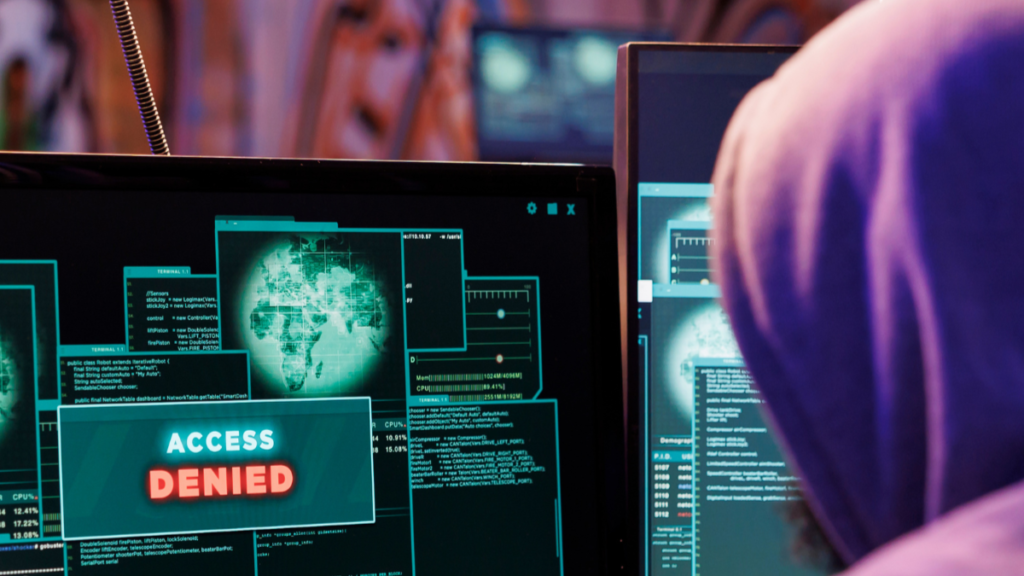When you hear about Bitcoin, you often hear words like “secure,” “unhackable,” and “decentralized.” But can bitcoin be hacked? Allow HTC News to break it down.
Understanding Bitcoin’s Security
Bitcoin operates on blockchain technology, a distributed ledger maintained by thousands of computers worldwide. This decentralization is a massive part of why Bitcoin is considered secure. Unlike a traditional bank or centralized system, there isn’t a single point of failure. Instead, every settlement is verified by multiple nodes (computers), making it incredibly hard for hackers to tamper with the records.
The 51% Attack: A Theoretical Threat
One of Bitcoin’s most talked-about vulnerabilities is the 51% attack. This happens when a single entity or group controls over half of the network’s mining power. If they achieve this, they could reverse transactions, double-spend coins, and prevent new transactions from confirming.
Sounds scary, right? While theoretically possible, the logistics of pulling off a 51% attack on Bitcoin are daunting. The computational power and energy required would be astronomical, making it an unlikely event. Plus, the financial incentive for miners to keep the network honest outweighs the benefits of attempting such an attack.
Hacking Bitcoin Wallets: The Real Risk
While hacking the Bitcoin network is incredibly difficult, individual Bitcoin wallets are a different story. Your Bitcoin is kept in a digital wallet protected by private keys. If anyone gets their hands on your private key, they can access your Bitcoin.
Here’s where you need to be vigilant. Phishing attacks, malware, and poor security practices can lead to wallet hacks. For example, if you store your private keys on a device that gets infected with malware, a hacker could easily steal your coins.
Exchange Hacks: The Soft Underbelly
Another vulnerable point in the Bitcoin ecosystem is cryptocurrency exchanges. These platforms, where you buy and sell Bitcoin, have been targeted by hackers numerous times. Remember the infamous Mt. Gox hack in 2014? Over 850,000 Bitcoins were stolen, a loss estimated at hundreds of millions of dollars at the time.
Since then, exchanges have beefed up their security but are still a prime target. When you keep your Bitcoin on an exchange, you trust them to keep it safe. And while many reputable exchanges have robust security measures, their systems are only partially foolproof.
How to Protect Crypto from Hackers?
So, how can you protect your Bitcoin? Here are a few tips:
Use Hardware Wallets
These physical devices keep your private keys offline, making them immune to online hacks.
Enable Two-Factor Authentication (2FA)
This adds another surface of security to your exchange and wallet accounts.
Be Wary of Phishing Scams
Always double-check URLs and avoid clicking on suspicious links.
Keep Your Software Updated
Ensure your wallet software, antivirus programs, and other security tools are up-to-date.
The Bottom Line
While the Bitcoin network itself is incredibly secure and virtually unhackable, the ecosystem surrounding it could be more impervious. Individual wallets and exchanges are vulnerable points that require your vigilance and best security practices.
In Bitcoin, being your own bank means taking full responsibility for your security. Understanding the dangers and taking appropriate measures can keep your Bitcoin safe from potential threats.
So, can Bitcoin be hacked? The network, not really. However, how you store and manage your Bitcoin can only be protected if you’re careful. Stay informed, stay secure, and enjoy the many benefits of this revolutionary digital currency.
FAQs About Bitcoin Security
Can Bitcoin be hacked?
Bitcoin’s underlying blockchain technology is highly secure due to its decentralized nature and cryptographic protocols. Hacking the Bitcoin network would require enormous computational power, making it virtually impossible.
What is a 51% attack?
A 51% attack occurs when a single body or group controls over half of the Bitcoin network’s mining power. This could allow them to reverse transactions and double-spend coins. However, the resources required make such an attack highly improbable.
How can I protect my Bitcoin from being hacked?
To protect your Bitcoin, use hardware wallets, enable two-factor authentication (2FA), avoid phishing scams, and update all your software. These measures significantly reduce the risk of your Bitcoin being stolen.
Are cryptocurrency exchanges safe?
While many reputable exchanges have robust security measures, they are still targets for hackers. It’s advisable to not store large amounts of Bitcoin on exchanges for extended periods. Instead, transfer your Bitcoin to a secure wallet you control.
What steps should I take if my Bitcoin wallet gets hacked?
If your wallet is hacked, immediately transfer any remaining funds to a secure wallet, report the theft to the provider, and inform local authorities. It’s also essential to analyze how the breach occurred to prevent future incidents.
read more: How Bitcoin Mining Works: A Deep Dive into the Digital Gold Rush

